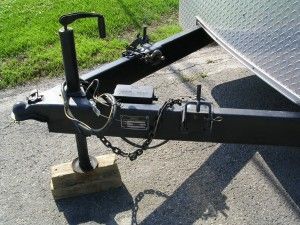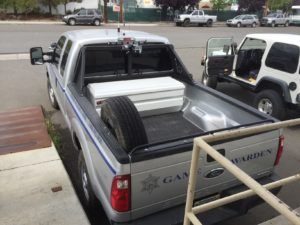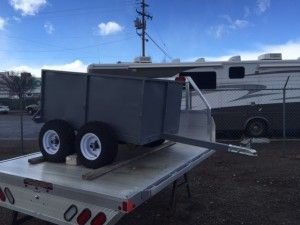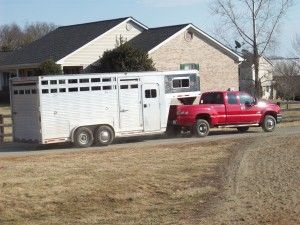Which Trailer Hitch Do I Need?
 The kind of trailer hitch your vehicle will need depends entirely on what you’re towing. Each class of hitch is determined by the amount of weight that it can tow (the gross tow weight) and how much weight can rest on the tongue of the trailer (the tongue weight).
The kind of trailer hitch your vehicle will need depends entirely on what you’re towing. Each class of hitch is determined by the amount of weight that it can tow (the gross tow weight) and how much weight can rest on the tongue of the trailer (the tongue weight).
There are five classes for a trailer hitch. Which one is for you?
The gross tow weight (GTW) is how much your trailer weighs plus whatever you are putting in it, or how much your camper weighs. The tongue weight (TW) should only be 8% -10% of the GTW. Be sure to check your vehicle’s owner’s manual for the gross tow weight (GTW) and the tongue weight (TW) that your vehicle will be able to handle.
There are currently five classes of hitches. There are four receiver hitch classes plus two different class V heavy duty hitches available. There are some websites that label a class V receiver hitch in their inventory. For the purposes of this blog we will cover them under class IV receivers and label heavy duty hitches as class V.
Here is a brief overview of those classes including their gross tow weight (GTW) capabilities and which vehicles can be used for each one.
Class I (Receiver hitch)
The class I hitch can tow 2,000 lbs. GTW and handle a TW of 200-250 lbs. This hitch can be used on all four wheeled road vehicles such as the subcompact, car, van, SUV, light duty truck, and heavy duty truck. This hitch gives you the versatility to haul various lighter loads like a jet ski, motorcycle, bike rack, or small cargo box.
Class II (Receiver hitch)
The class II hitch can tow 3,500 lbs. GTW and handle a TW of 250-350 lbs. This hitch can be used on most vehicles like the car, van, SUV, light duty truck, and heavy duty truck. This heavier GTW allows for you to pull smaller camper trailer, multiple recreational vehicles, larger cargo box, or a small boat.
 Class III (Receiver hitch)
Class III (Receiver hitch)
The class III hitch can tow 6,000 lbs. GTW and handle a TW of TW of 350-600 lbs. These numbers can be increased if you implement a Weight Distributing (WD) ball mount. This system evenly distributes the GTW over the entire car instead of just the back end.
A class III WD can tow up to 8,000 lbs. with a TW of 650-800 lbs. These larger towing loads can only be utilized on vehicles like the SUV, medium truck, and heavy duty truck. This larger towing capacity allows for trailers 15-20 ft. in length and larger fishing boats.
Class IV (Receiver hitch)
The class IV hitch can tow 10,000 lbs. GTW and a handle a TW of 800-1,000 lbs.
The class IV WD can tow up to 16,000 lbs. GTW and handle a TW of 1,400-1,600 lbs. The only vehicles that can handle these loads are heavy duty trucks and larger SUVs. These large towing capacity would allow you to tow multiple smaller vehicles.
Class V (Gooseneck/ Fifth Wheel)
The class V Gooseneck hitch can tow 16,000-30,000 lbs. and handle a TW of 5,000 lbs. It is more traditional hitch utilizing a ball mount.
The class V Fifth Wheel hitch can tow 16,000-30,000 lbs. and handle a TW of 6,000 lbs. It is considered easier to turn as it uses a pin mount system. This is a system where the coupler is part of the hitch and not the trailer.
The class V hitch can only be used in commercial grade trucks. It mounts to the bed of the truck where the vehicle is better equipped to handle this heavier TW. This class of hitches is commonly used for trailers in excess of 20 ft., car haulers, travel trailers, or hauling livestock.
Let Us Help You Find Your Hitch. Call Us At
(775) 329-2226, Or
CLICK HERE
To Contact Us Online!
Bringing Service To You!
Contact Information
Phone: (775) 329-2226
Email: krobuilt@hotmail.com
Address: 2695 Tacchino Street Reno, NV 89512


